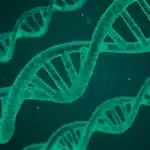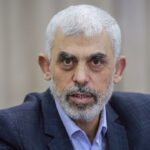Arvid Carlsson was a Swedish pharmacologist and neuroscientist. He was awarded the Nobel Prize in Physiology or Medicine.
Life and Career
Arvid Carlsson was born on January 25, 1923, in Uppsala, Sweden. He enrolled at Uppsala University in 1941, where he studied medicine. His academic pursuits were temporarily interrupted by World War II when he served in the Swedish Armed Forces. After the war, Carlsson completed his medical degree in 1951.
Carlsson’s career in neuroscience began when he joined the staff of the pharmacology department at Uppsala University. In the mid-1950s, he conducted research on the role of monoamine neurotransmitters in the brain, particularly dopamine.
In 1957, Arvid Carlsson, along with his colleague Nils-Åke Hillarp, made a groundbreaking discovery. They found that dopamine is a neurotransmitter in the brain, establishing its importance in the central nervous system. This discovery was a significant contribution to understanding brain function and had broad implications for neurobiology and pharmacology.
Building on his discovery of dopamine, Carlsson’s research played a crucial role in the development of L-DOPA as a treatment for Parkinson’s disease. L-DOPA became a groundbreaking medication, providing relief to Parkinson’s patients by replenishing dopamine levels in the brain.
Arvid Carlsson continued to make significant contributions to neuroscience throughout his career. He held various academic positions, including serving as a professor of pharmacology at the University of Gothenburg. His work earned him numerous accolades, including the Nobel Prize in Physiology or Medicine in 2000, which he shared with Paul Greengard and Eric Kandel.
He died on 29 June 2018, in Gothenburg, Sweden.
Award and Legacy
Arvid Carlsson received numerous awards and honors throughout his distinguished career, recognizing his groundbreaking contributions to the field of neuroscience. One of the most notable accolades was the Nobel Prize in Physiology or Medicine, awarded in 2000. He shared this prestigious award with Paul Greengard and Eric Kandel for their work on signal transduction in the nervous system.
In addition to the Nobel Prize, Carlsson received several other awards, including the Japan Prize in 1978, the Wolf Prize in Medicine in 1979, and the Prince Mahidol Award in 1998.
Arvid Carlsson’s legacy is characterized by his groundbreaking discoveries, which continue to influence scientific research and medical treatments. His work not only deepened our understanding of the brain but also had a tangible and positive impact on the lives of individuals affected by neurological disorders.
Observer Voice is the one stop site for National, International news, Editor’s Choice, Art/culture contents, Quotes and much more. We also cover historical contents. Historical contents includes World History, Indian History, and what happened today. The website also covers Entertainment across the India and World.










